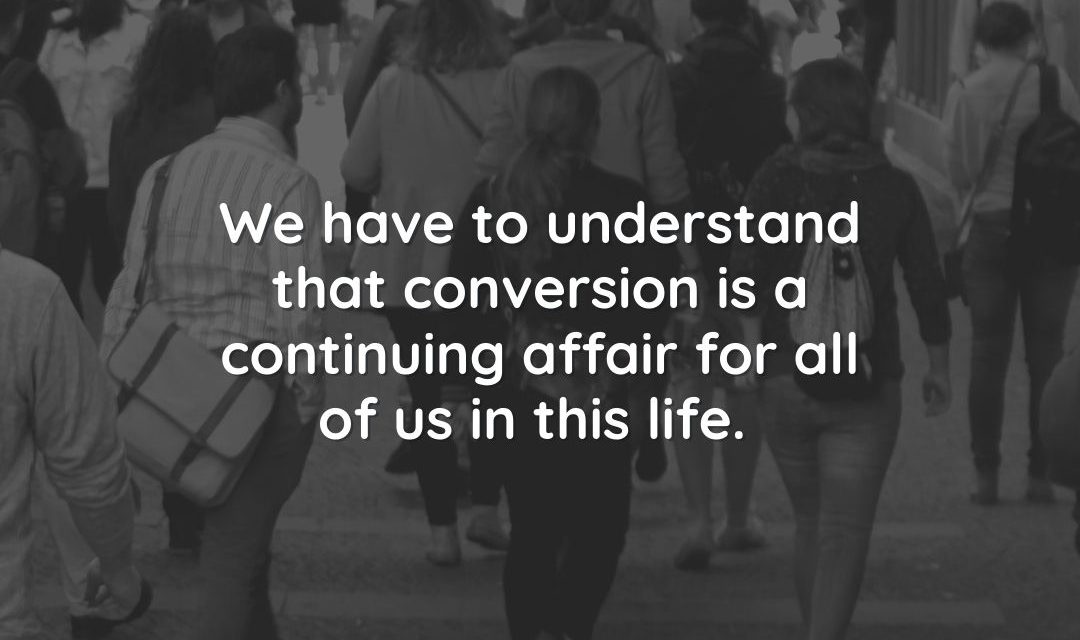
Our constant need for conversion


By Fr. Roy Cimagala
“Repent, for the Kingdom of heaven is at hand.” (Mt 4,17) Words of Christ. We have to be realistic about ourselves and acknowledge our sinfulness and the constant need for conversion and penance.
This is an important matter to attend to if we want our Christian life to keep going. There is no use denying this obvious fact of life. As St. Paul quoted the Scriptures: “No one is righteous—not even one. No one is truly wise; no one is seeking God…For everyone has sinned; we all fall short of God’s glorious standard.” (Rom 3,10-11.23) St. John reiterated the same point in his first letter: “If we claim to be without sin, we deceive ourselves and the truth is not in us.” (1,8)
The sad fact that we have today is that many people are losing the sense of sin. Any idea they have about sin is strictly limited to their own very subjective view of what is bad and wrong. And this usually has no, or hardly any, relation to the articulated will and commandments of God.
We have to understand that conversion is a continuing affair for all of us in this life. We can never say, if we have to follow by what our Christian faith tells us, that we are good enough as to need conversion no more.
It’s good that we never forget this reality. But we need to prepare ourselves for it by developing the virtue of penance. This virtue starts when we acknowledge these conditions about ourselves. We should be humble enough to accept this reality.
But the virtue of penance goes farther than that. It grows when we put up the necessary defenses against these enemies of our soul and wage a lifelong ascetical struggle. Yes, our life will be and should be a life of warfare, a war of peace and love that will also give us certain consolations in spite of the tension.
And for this penance to be a true virtue, it has to include an indomitable hope that can survive even in the worst of scenarios. In fact, this hope gets stronger the uglier the warfare also gets.
It’s a hope based on God’s never-sparing mercy. Some relevant words of St. Paul: “I am sure that he who began a good work in you will bring it to completion at the day of Jesus Christ.” (Phil 1,6) It would be good if these Pauline assurance forms the deep attitude we should have toward our fragile human condition.
Besides, we should not forget that nothing happens in our life without at least the permission and tolerance of God. And if he allows something to happen, no matter how evil it is, it is because a greater good can be derived from it. Precious lessons can also be learned from our sinfulness.
God predestines no one to fail definitively, although we have the power, due to our freedom, to go against God’s will and saving designs. This truth of our faith should never be forgotten, especially in our deep moments of misery and misfortune.
The virtue of penance also includes the desire and practice of regular and frequent recourse to the sacrament of penance, where through the ministry of priests, Christ comes to us as father, friend, judge and doctor. This sacrament not only reconciles us with God, but also repairs whatever damage our sin would cause on others and the Church in general.
Love Offering:










